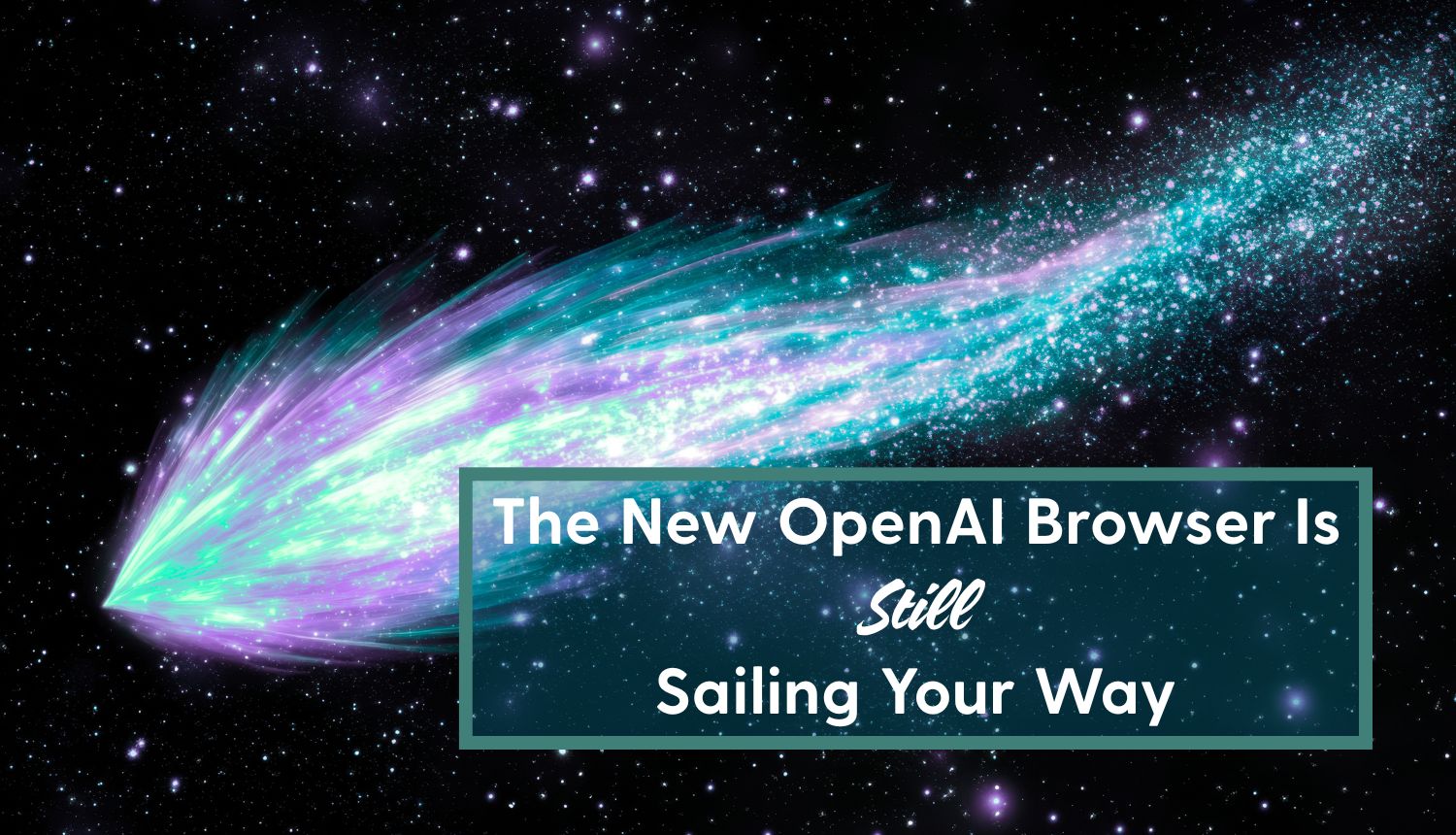A few months ago you may have seen news articles or heard water-cooler rumors about a new web browser from OpenAI that might shake up the world of internet surfing. Everyone was breathlessly saying that it would be available in mere weeks. Well, that super browser hasn’t yet raised its AI head. However, OpenAI is promising that it’s still in the works and will soon be available to make your life better.
So, let’s discuss what makes this AI-powered search engine worth examining—and why its introduction could make a difference for you.
First of all, the heart of every web browser ever made is money. We often think that the browsers we use are simply considerate helpers that point us to the information we want to know. But the fact is that Google Chrome, Firefox, Safari, Microsoft Edge and others are much more interested in the business of selling us things than giving us some free direction.
Chrome, for instance, is an important part of parent company Alphabet’s ad structure, bringing in three-quarters of its annual revenue. It tracks your likes and habits and, accordingly, guides you to its ads and its product placements. Google and Alphabet won’t be happy if OpenAI redirects you and few hundred thousand of its other buyers, er, users away from its ads.
How would that happen?
Well, one of the key “selling” points of the OpenAI browser is the fact that it will connect you with an AI agent that is capable of performing certain duties for you. So while Google will respond to queries by giving you a curated list of the “top” sites you should visit, the OpenAI agent (based on ChatGPT) will have a conversation with you. Then it will help pinpoint the exact site or information you’re looking for based on your responses. No other filters will be needed.
What that means is that when you start looking for concert tickets or weather reports or try to verify news information, you can give your agent the specifics of what you’re looking for, and it will instantly do the searching and provide you with the answer without you having to go anywhere.
Help you set up flights? Yep. Provide direct links to source materials you heard about? Sure. Fetch niche or obscure content? Uh huh. Give you summaries of Plugged In reviews? You bet. At least those are some of OpenAI’s stated goals. (Although it should be noted that artificial intelligence has a history of making mistakes on that last one.)
Oh, and that AI agent can also dig up documents for you and help you fill out forms you need to complete. So, when you’re trying to register that used car you just bought, the AI agent locates the form, fills it out with your info and posts it wherever it needs to go. Your local government site may be cumbersome to dig through and navigate, but you won’t need to hassle with it. That’s your agent’s job.
It’s also important to note what OpenAI guarantees its new browser will not do. OpenAI promises not to access any private information stored behind paywalls or logins or the like. It will not track your browsing activity or collect any personal data on where you visit and what you enjoy. And it won’t pretend to be a human user at any point.
Of course, it’s always wise to be forward-thinking and wary about any online app, tool or search engine you use. After all, as Perplexity AI learned just this past week with its own AI-based browser, Comet, bad actors can still find ways to manipulate and misuse even the brightest of AI agents.
So don’t consider this blog to be a cheery gung-ho endorsement of that upcoming browser. This is just the info that we’ve gathered as your personal Plugged In agent.
Steady as she goes! sailors of old used to say. It’s an idiom that was often used to advise caution, perseverance and a steadfast approach in order to gracefully navigate the tumultuous waves. And the ever-churning internet can be tumultuous indeed. We’ll do our best to lend you our spyglass whenever you’d like.







![8th Oct: Love in the Clouds (2025), 11 Episodes [TV-PG] (6/10)](https://occ-0-8164-92.1.nflxso.net/dnm/api/v6/Qs00mKCpRvrkl3HZAN5KwEL1kpE/AAAABcZJNJZAczPdyJkwPv6wPSIeJqQrxjpEmG4GRCirlRn4c9WZD3NvMu76A2auydNYG72ZcQrvtH2ihDLAONlIoa2zmehW8EZinGRGH04mqzGwhMvejxHeQtRi_FLuWxfe2Armp96EQRcjd9viLo4_pGBuo9Mxgietwxy9RplLJFXoI_xuZHaUcUQgDyWSqPbmUQvZ8ThozcT1D1L2P00lJiXgIzzG9sbbIYULndc-OMGZMEAjNC-tFbb3xkodncblnM8wFQFEOPA5WDSK4h7gxj0VHG5qhBJss8BtgEUKGhoHFrA9yUYWD2U2Jyg4WQ.jpg?r=ce1)





